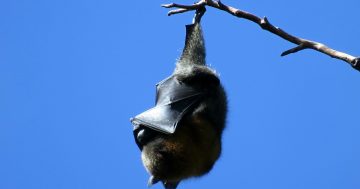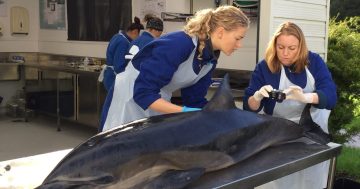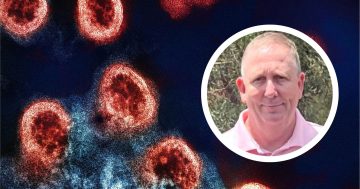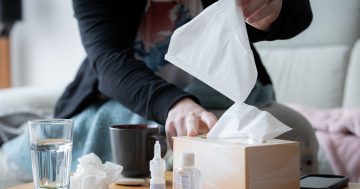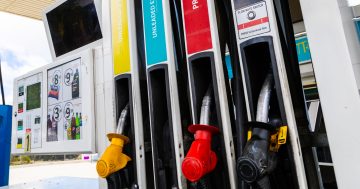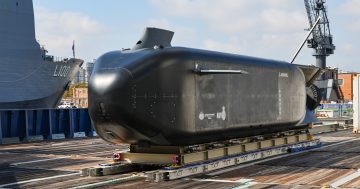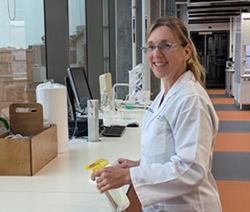 A surface spray that has the potential to kill viruses such as COVID-19 and other potentially deadly bacteria has been developed by researchers at the University of Queensland.
A surface spray that has the potential to kill viruses such as COVID-19 and other potentially deadly bacteria has been developed by researchers at the University of Queensland.
The long-lasting spray contains a protein that allows it to stick to surfaces and remain effective for 24 hours and it is being assessed by the Therapeutic Goods Administration for commercial cleaning use.
Heather Shewan, from UQ’s School of Chemical Engineering, led the team that created the spray for use on various surfaces and the killing of COVID-19 and bacteria such as E. coli and staphylococcus aureus.
“We used hydrolysed gelatine which essentially helps create a thin film that allows the spray to stick on surfaces and can stay there for at least a day and potentially longer,” Dr Shewan (pictured) said.
“This durability means it is effective over a longer period than a standard cleaner and has the potential to be used in high-use areas such as public transport, kitchens, hotels, retail outlets, hospitals and public areas.”
She enlisted the help of virologist, Kirsty Short and microbiologist, Deirdre Mikkelsen to provide the multi-disciplinary expertise required.
The team used several methods to test the spray, which is cost-effective to manufacture, and is not harmful to the environment.
Dr Short said one test involved spraying glass surfaces with the cleaner and leaving it to dry.
“After 24 hours we added the COVID virus and further testing showed it did not survive,” Dr Short said.
“We also conducted other tests that showed even after rinsing surfaces with water, the spray significantly reduced the amount of virus that was able to survive on stainless steel.”
Minister for Innovation, Stirling Hinchliffe said the research was made possible through an Advance Queensland Industry Fellowship grant of $90,000.
“Once approved, the spray will be manufactured at the Gold Coast and has the potential to create up to 30 jobs,” Mr Hinchliffe said.


